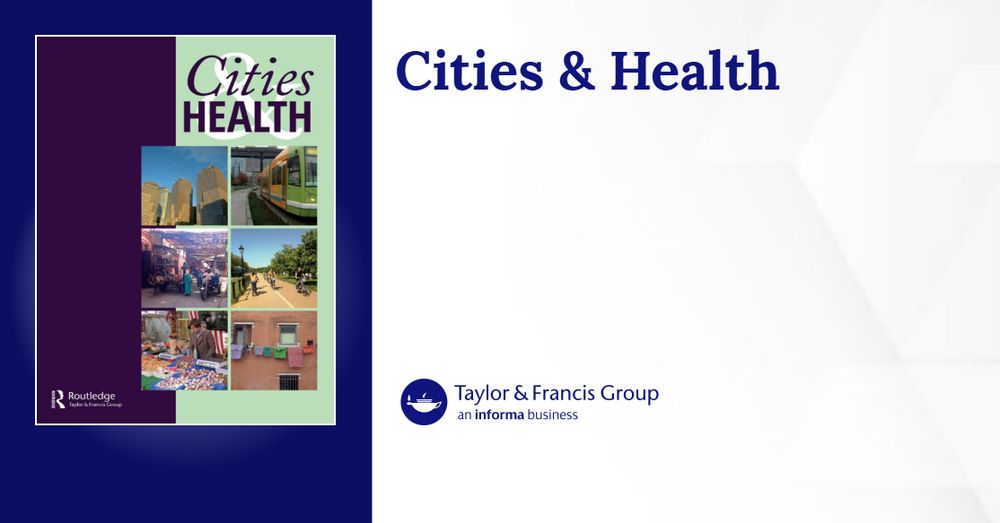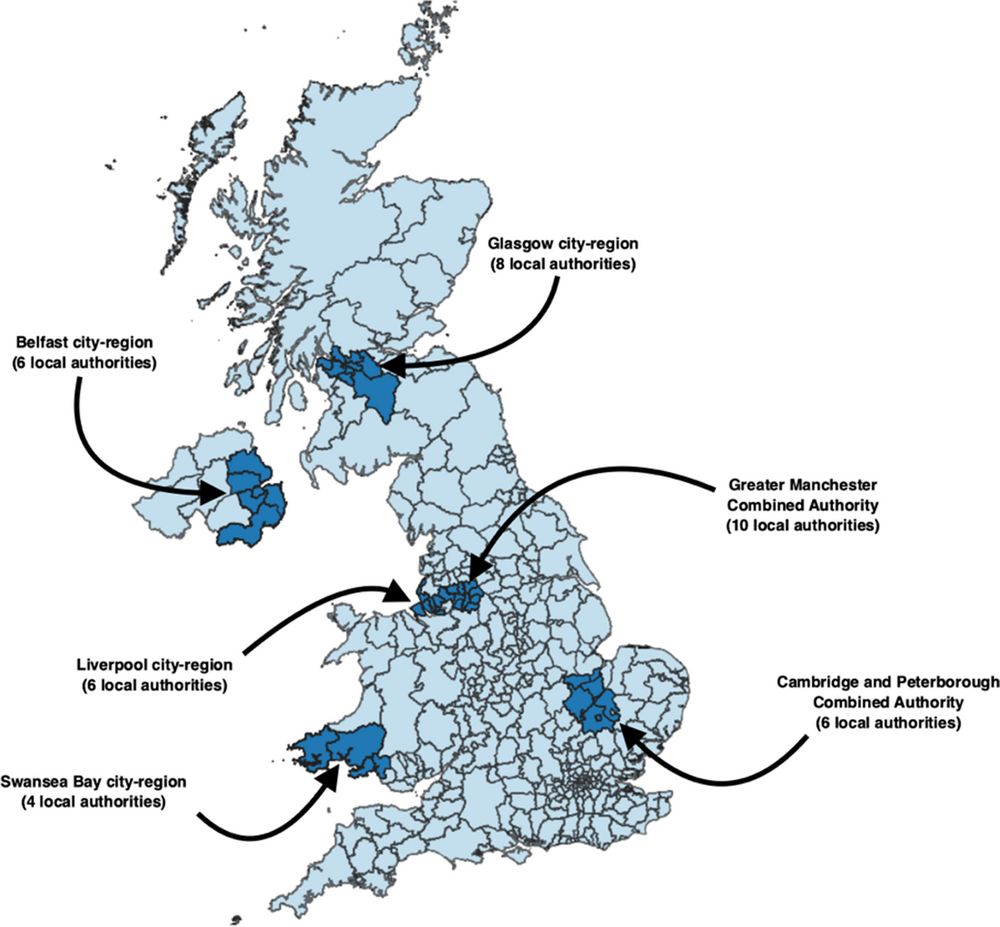Andrew Sudmant
@andrewsudmant.bsky.social
IPCC SR Cities, Chapter 5. Urban sustainability and co-benefits of climate action. Edinburgh Climate Change Institute, University of Edinburgh.
I would be really grateful for more thoughts from you on this, Im confused!
October 23, 2025 at 10:03 AM
I would be really grateful for more thoughts from you on this, Im confused!
Covid was a once in a century event we are still recovering from. This regression to the mean assumption is wrong imo, but to assume the recent past is a good indicator for the future is also hugely fraught.
October 1, 2025 at 7:55 AM
Covid was a once in a century event we are still recovering from. This regression to the mean assumption is wrong imo, but to assume the recent past is a good indicator for the future is also hugely fraught.
And presumably new oil and gas is more gradually capital intensive to access so stagnating investment means declining future production? (this thought carries several assumptions I may have wrong)
September 18, 2025 at 11:37 AM
And presumably new oil and gas is more gradually capital intensive to access so stagnating investment means declining future production? (this thought carries several assumptions I may have wrong)
I'm really grateful for all your work Dan, I'm one of the many who quietly follow your posts to make sense of tax question!
September 5, 2025 at 9:29 AM
I'm really grateful for all your work Dan, I'm one of the many who quietly follow your posts to make sense of tax question!
I enjoy your work but this is not appropriate.
August 27, 2025 at 7:15 AM
I enjoy your work but this is not appropriate.
A related question I ponder more than I should. Many bathrooms in the UK charge for use. Did someone (likely a consultant) really decide “I don’t think scarce public resources should go to… helping remove human waste from our communities”?
August 26, 2025 at 8:44 AM
A related question I ponder more than I should. Many bathrooms in the UK charge for use. Did someone (likely a consultant) really decide “I don’t think scarce public resources should go to… helping remove human waste from our communities”?
I don’t think this is quite right. A higher discount rate does prevent future benefits from swamping your analysis. Even a modest discount rate really crushes anything 25 years+. And even with climate action a rate close to zero doesnt make sense bc of uncertainty and growth.
August 11, 2025 at 8:45 PM
I don’t think this is quite right. A higher discount rate does prevent future benefits from swamping your analysis. Even a modest discount rate really crushes anything 25 years+. And even with climate action a rate close to zero doesnt make sense bc of uncertainty and growth.
And this is just the story of the financial benefits, arguably more important are the range of social, economic and environmental benefits (co-benefits) that dwarf the financial benefits and that pay dividends almost immediately: ukcobenefitsatlas.net
ECCI
ukcobenefitsatlas.net
August 3, 2025 at 8:58 AM
And this is just the story of the financial benefits, arguably more important are the range of social, economic and environmental benefits (co-benefits) that dwarf the financial benefits and that pay dividends almost immediately: ukcobenefitsatlas.net
Great article! If this is not too rude, here’s our recent work on car free days showing how the program saves lives by reducing air pollution exposure: www.tandfonline.com/doi/full/10....

Natural experiments in urban air quality: lessons from car-free days and COVID-19 lockdowns in Kigali, Rwanda
A lack of long-term air quality monitoring data in African countries such as Rwanda poses a significant challenge as urbanization leads to declining air quality. This study uses four years of data ...
www.tandfonline.com
April 10, 2025 at 7:37 AM
Great article! If this is not too rude, here’s our recent work on car free days showing how the program saves lives by reducing air pollution exposure: www.tandfonline.com/doi/full/10....
yes, entrepreneurs innovate without universities helping them. But progress is never de novo. "Technologies" of all kinds come from existing knowledge which is available bc of "coordination" and those "technologies" get into the world because of "coordination". It's coordination all the way down.
March 20, 2025 at 9:31 AM
yes, entrepreneurs innovate without universities helping them. But progress is never de novo. "Technologies" of all kinds come from existing knowledge which is available bc of "coordination" and those "technologies" get into the world because of "coordination". It's coordination all the way down.
We’re doing a lot of work on cobens if you’re ever interested let me know! We have some new work on CCC pathways and local cobens soon. Heres some older stuff link.springer.com/article/10.1...

Climate policy as social policy? A comprehensive assessment of the economic impact of climate action in the UK - Journal of Environmental Studies and Sciences
Co-benefits are central to the case for climate action but are side-lined in many economic analyses. This paper presents an evaluation of three dimensions of the costs and benefits of climate change i...
link.springer.com
February 16, 2025 at 10:27 AM
We’re doing a lot of work on cobens if you’re ever interested let me know! We have some new work on CCC pathways and local cobens soon. Heres some older stuff link.springer.com/article/10.1...
Two, the indirect impacts of climate actions (the cobenefits) are big. Just the health benefits from air quality improvements are huge.
In any case, thanks for this post!
In any case, thanks for this post!
February 14, 2025 at 11:01 AM
Two, the indirect impacts of climate actions (the cobenefits) are big. Just the health benefits from air quality improvements are huge.
In any case, thanks for this post!
In any case, thanks for this post!
I think we might make a mistake focusing on the first order stuff. One, tech innovation pushed by climate action is a big deal. Battery storage for grid balancing is going to make batteries for other applications cheaper, better, etc.
February 14, 2025 at 11:01 AM
I think we might make a mistake focusing on the first order stuff. One, tech innovation pushed by climate action is a big deal. Battery storage for grid balancing is going to make batteries for other applications cheaper, better, etc.
thanks Andrew, really enjoyed this. It's left me thinking, to what extent is energy expenditure a good way to capture the productivity impacts of climate action? Similarly, to what extent is the productivity impact about the first order impacts vs second order (and sometimes longer term) impacts?
February 14, 2025 at 11:01 AM
thanks Andrew, really enjoyed this. It's left me thinking, to what extent is energy expenditure a good way to capture the productivity impacts of climate action? Similarly, to what extent is the productivity impact about the first order impacts vs second order (and sometimes longer term) impacts?
The @data.ft.com style guide has “placed” strictly for cucumber sandwiches, teaspoons, top hats, monocles.
February 12, 2025 at 2:29 PM
The @data.ft.com style guide has “placed” strictly for cucumber sandwiches, teaspoons, top hats, monocles.
Aren’t assumable mortgages an easier answer? Why aren’t they a thing?
December 28, 2024 at 9:39 PM
Aren’t assumable mortgages an easier answer? Why aren’t they a thing?
The whole thing is fantastic.
December 20, 2024 at 8:45 AM
The whole thing is fantastic.

